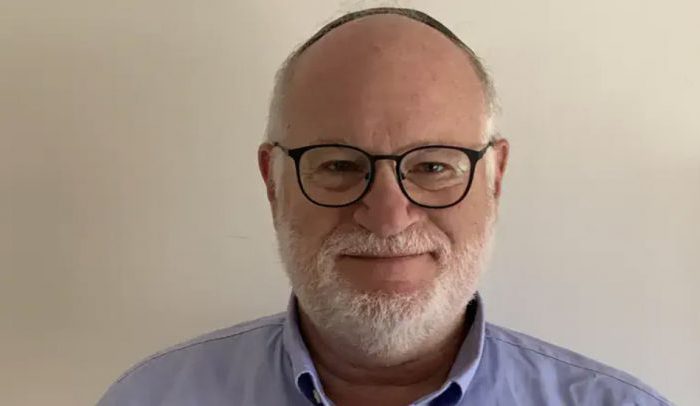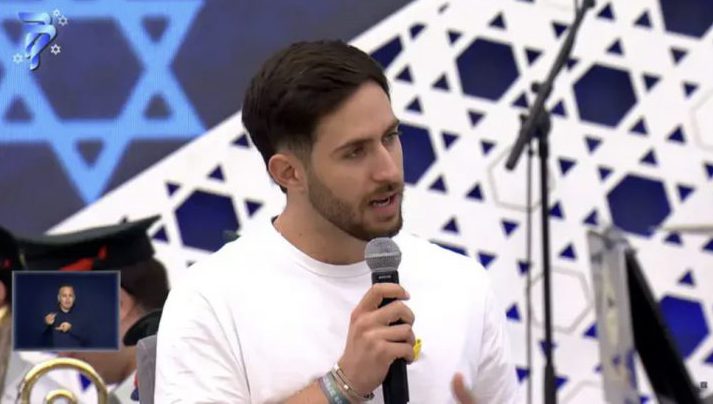On Pesach night, we were chosen, and history was never the same.
Generations of Jews, living under the most trying circumstances, surely asked themselves this probing question: how can we celebrate Pesach, the season of our freedom, when we are no longer free? We may no longer be slaves to Pharaoh but we were enslaved to Romans, Christians, Muslims, and Crusaders, to Inquisitors, Fascists, Nazis, and Communists. We were still tormented by evildoers such as Pope Urban II, Ferdinand and Isabella, Bogdan Chmielnicki, Al-Mahdi Ahmad (17th century Imam who banished the Jews from most of Yemen), Empress Maria Teresa, Czar Nicholas I, Hitler, Stalin, and too many others.
What sort of freedom could their Jewish subjects celebrate on Pesach night? Why celebrate that we were once liberated?
Conversely, many wonder today how we recite in the Haggadah “now we are slaves; next year, we will be free.” With all our travails and even the looming threats, we are blessed from Above with living in a golden age of Jewish life. There are few Jews who are persecuted today, Jews live in the exile by choice, many Jews across the world are remarkably successful, and our reborn Jewish state is flourishing despite the evil designs of our enemies.
How are we slaves? And how is the average Israeli supposed to relate to “we were slaves to Pharaoh in Egypt”? That condition is so far removed from his or her daily life as to be irrelevant.
In the exile, we were not free, and when we uttered “next year we will be free,” it was with hope tinged with resignation. Today, we are free, so with what sincerity can we state that “now we are slaves”? Either way, the night of Pesach requires a relatable definition. How is this night different from all other nights? What change did the Exodus introduce into Jewish life?
Pesach night is the moment in history when we were designated G-d’s Chosen People. It is why the kiddush at the seder is one of the required four cups and not just a regular kiddush for Yom Tov; after all, it begins blessing G-d “who chose us from all nations, exalted us above all cultures, and sanctified us through His commandments.” It is why we read Shir Hashirim on Pesach, that sublime and esoteric account of the eternal love between Hashem and His people. It is why “this day shall be a remembrance for you, and you shall keep it as a feast to G-d, throughout your generations… forever” (Shemot 12:14).
In the opening words of Kiddush – “who chose us from all the nations” – we proclaim the fundamental theme of the night and the purpose of the Exodus: that the Jewish people were chosen by G-d as His representatives on earth. Thus, on Pesach, we do not commemorate the past but revel in the chosenness of the moment. That chosenness is still extant and transcends any political situation. Jews who lived with appalling persecution found comfort (sometimes even wry humor) in our status as the Chosen People. Jews who live today under the most benign and prosperous conditions need to be reminded that the objective of our national life is not the accumulation of toys but the realization of the divine purpose for which we were designated.
As the Haggadah states, if G-d had not liberated us from Egypt, “we would still be slaves to Pharaoh.” Really? Yes, because even if the tyrant would not be Pharaoh himself, it would be someone or something else. There would be nothing special, unique, or chosen about us. We would be enslaved in Mitzrayim, the land of limits, in the degradation inherent in a vapid and godless life. We might have been free but we would not have been chosen. On Pesach night, we were chosen, and history was never the same.
Certainly, many Jews recoil from the notion of “chosenness,” preferring to dilute the concept by referring to our increased obligations or responsibilities. That is true, but G-d did not label us His “obligated people” or “responsible people” but His chosen people.
Chosenness means that we are intrinsically bound to G-d and to no human being. Rav Soloveitchick pointed out that the Hagadah underscores that “we were slaves to Pharaoh in Egypt,” rather than the simpler locution “we were Pharaoh’s slaves.” To be a “slave to” a tyrant is what you do; it is not who you are. A chosen people can never truly be slaves to any human being.
What does it mean to be chosen? Rav Ovadiah Sforno (commentary to Shemot 19:5-6) suggested that all nations are precious, but we are the most precious when we are the kingdom of priests that teaches all of mankind to turn to G-d and worship Him together. Our chosenness is inherently connected to our loyalty to Hashem. We are mandated to use our talents and culture to spread G-d’s word, to be an original source of light to the nations rather than a pale reflection of their progressive values and decadent behavior.
And because we are chosen, we will always have a unique history that defies human comprehension.
-Only we returned to our homeland after an exile of nearly two millennia.
-Only we are subjected to relentless hatred from across the globe – from left, right, and center, from the “religious” and the atheist.
-Only we can be brutalized, massacred, and kidnapped, and hear sundry voices find large audiences when saying, “well, maybe they deserved it.”
No other group on earth is victimized and is forced to hear those rationalizations. It is because we are chosen – and need to find our voice, resolute and proud, defiant and strong, to articulate this to others.
On Pesach we were chosen by G-d as His people – and every Pesach must be the catalyst to embrace our chosenness and use it to redeem the world. Chag Kasher v’sameach!
Rabbi Pruzansky is author of six books, including “Road to Redemption” (Kodesh Press) on the holiday of Pesach.





